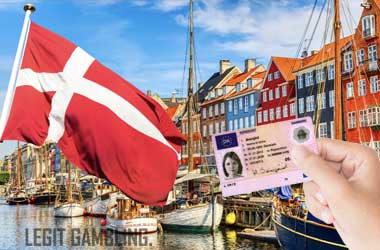 Summary:
Summary:
- The six projects were approved as part of the KSA’s prevention of gambling addiction research program
- The projects are funded via the Addiction Prevention Fund managed by the KSA
- The Breakthrough Round commences in February 2024
The Netherlands has announced funding for six projects as part of a research program focused on the prevention and treatment of gambling addiction.
The program, supervised by the Dutch gambling regulator, the Kansspelautoriteit (KSA), will run until 2029.
Six Projects Receive Funding From Addiction Prevention Fund
Following the launch of the Dutch regulated online gambling market in October 2021, an Addiction Prevention Fund was established. Managed by the KSA, the fund was set up with the primary goal of funding research into the prevention and treatment of gambling addiction.
To realize that goal, the KSA requested the Dutch national organization for health research and healthcare innovation (ZonMw) to develop a research program in that area.
This week, the KSA confirmed that six projects were approved under the program, with the breakthrough round commencing in February 2024.
The projects, spearheaded by Amsterdam UMC, Trimbos Institute, the University of Amsterdam and IVO, will focus on issues related to treatment and interventions, vulnerable groups, gambling-related damage, and the product characteristics/context of gambling.
Overview of the Projects
Two of the projects are from Amsterdam UMC. The first one, titled “Evaluation and innovation of effective CBT treatment for gambling: stepping up the game, a mixed methods study” will look into the effectiveness of cognitive behavioral therapy for gambling-related issues.
The second project from Amsterdam UMC, “What makes them tick? Characteristics of youth that gamble, the prevalence and possible gateways to (harmful) gambling”, will investigate the demographic, cognitive, psychological, and social factors that predict gambling problems among young adults in the country.
Trimbos Institute has received funding for two projects as well. “Developing and testing the effectiveness of Moti-4 for gambling problems in youth” will study the effectiveness and areas for improvement of the Moti-4 program in reducing gambling problems.
In its second project, “Applying the gambling harms framework to the Netherlands: Developing multiple indicators to support assessment of gambling harms”, Trimbos Institute aims to enhance the measurement of gambling harm indicators in the Netherlands.
IVO’s project, “Empowering Professionals: A Design Study to Develop Guidelines to Identify and Support At-Risk and Problem Gamblers”, looks to develop guidelines to discuss and recognize problem gambling among vulnerable groups and to provide support for those exhibiting signs of problem gambling.
“Exposure to and consequences of gambling marketing communication for vulnerable groups: a multi-method approach”, a project from the University of Amsterdam, will assess Dutch customers’ exposure to gambling advertisements and its impact on vulnerable groups.

 United States
United States United Kingdom
United Kingdom














